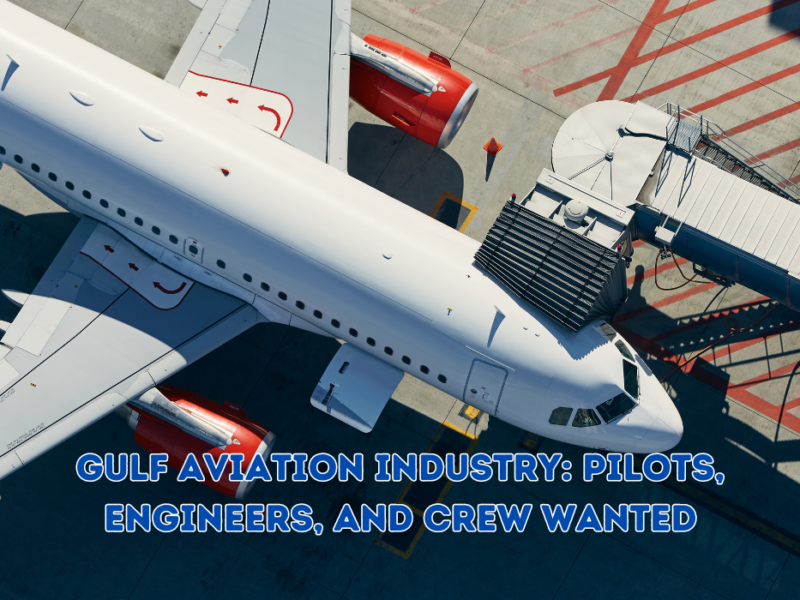The Gulf aviation industry stands as a beacon of opportunity for pilots, engineers, and crew members alike. As the region continues to experience exponential growth in air travel, the demand for skilled professionals in aviation has never been higher.
Introduction to the Gulf Aviation Industry
The Gulf region, encompassing countries like the United Arab Emirates, Qatar, and Saudi Arabia, has emerged as a global aviation hub. With state-of-the-art airports, ambitious airline carriers, and a strategic geographic location connecting East and West, the Gulf offers a dynamic environment for aviation professionals.
Growing Demand for Aviation Professionals
Current Industry Landscape
The Gulf aviation industry is witnessing unprecedented growth, fueled by increasing tourism, business travel, and economic development. Major airlines such as Emirates, Qatar Airways, and Etihad Airways are continuously expanding their fleets and routes, leading to a surge in demand for skilled pilots, engineers, and crew members.
Future Projections
Analysts project sustained growth in the Gulf aviation sector for the foreseeable future. With ambitious infrastructure projects, such as airport expansions and new airline ventures, the demand for aviation professionals is expected to remain robust, creating abundant career opportunities.
Opportunities for Pilots in the Gulf
Requirements and Qualifications
Aspiring pilots aiming for a career in the Gulf aviation industry must meet stringent requirements set by regulatory authorities. These typically include obtaining a commercial pilot license (CPL), accumulating flight hours, and undergoing thorough medical examinations.
Career Growth Prospects
Pilots in the Gulf have access to diverse career paths, ranging from first officers on narrow-body jets to captains on long-haul flights. With experience and additional training, opportunities for advancement into managerial roles or specialized aviation sectors become attainable.
Demand for Engineers in Gulf Aviation
Specializations in Demand
Engineers play a crucial role in ensuring the safety and efficiency of aircraft operations. In the Gulf, there is a high demand for engineers specializing in aircraft maintenance, avionics, and aerospace technology.
Skills and Qualifications Needed
Prospective engineers must possess a strong foundation in engineering principles, coupled with specialized knowledge relevant to the aviation industry. Certifications from recognized aviation authorities further enhance employability and career advancement prospects.
Opportunities for Cabin Crew
Job Roles and Responsibilities
Cabin crew members are the face of airlines, responsible for ensuring passenger safety, comfort, and satisfaction. In the Gulf, cabin crew roles encompass a wide range of duties, including inflight service, emergency procedures, and customer care.
Training and Qualifications
Individuals aspiring to join the cabin crew undergo comprehensive training programs covering aspects such as safety protocols, first aid, and customer service etiquette. Fluency in English and proficiency in additional languages are often preferred qualifications.
Challenges Faced by Aviation Professionals
Work-Life Balance
The dynamic nature of the aviation industry in the Gulf can pose challenges to maintaining a healthy work-life balance for professionals. Irregular schedules, long flights, and time away from home are common realities for pilots, engineers, and cabin crew.
Regulatory Changes
The aviation sector is subject to evolving regulatory frameworks and safety standards. Professionals must stay abreast of industry developments and undergo recurrent training to ensure compliance with changing requirements.
How to Prepare for a Career in Gulf Aviation
Education and Training Options
Investing in quality education and training is essential for aspiring aviation professionals. Accredited flight schools, engineering programs, and cabin crew training academies offer specialized courses tailored to the needs of the Gulf aviation industry.
Networking and Job Search Strategies
Building a strong professional network and utilizing online platforms can significantly enhance job prospects in Gulf aviation. Networking events, career fairs, and online job portals provide avenues for connecting with industry insiders and accessing job opportunities.
Conclusion
The Gulf aviation industry presents unparalleled opportunities for pilots, engineers, and cabin crew seeking rewarding careers in a dynamic and rapidly expanding sector. With the right qualifications, skills, and determination, aspiring professionals can embark on fulfilling journeys in the skies of the Gulf.
FAQs
- What are the typical entry requirements for aspiring pilots in the Gulf?
- Entry requirements usually include obtaining a commercial pilot license (CPL), accumulating flight hours, and passing medical examinations.
- What career advancement opportunities are available for aviation engineers in the Gulf?
- Aviation engineers can advance into managerial roles, specialize in specific aircraft systems, or pursue further education to enhance their expertise.
- How competitive is the job market for cabin crew positions in Gulf airlines?
- The job market can be competitive, but candidates with relevant training, language proficiency, and customer service experience have good prospects.
- What are some of the key challenges faced by aviation professionals in the Gulf?
- Challenges include maintaining work-life balance due to irregular schedules and staying updated with evolving regulatory requirements.
- Are there opportunities for expatriates to work in the Gulf aviation industry?
- Yes, Gulf airlines often recruit skilled professionals from around the world to meet the growing demand for aviation talent.


Comments